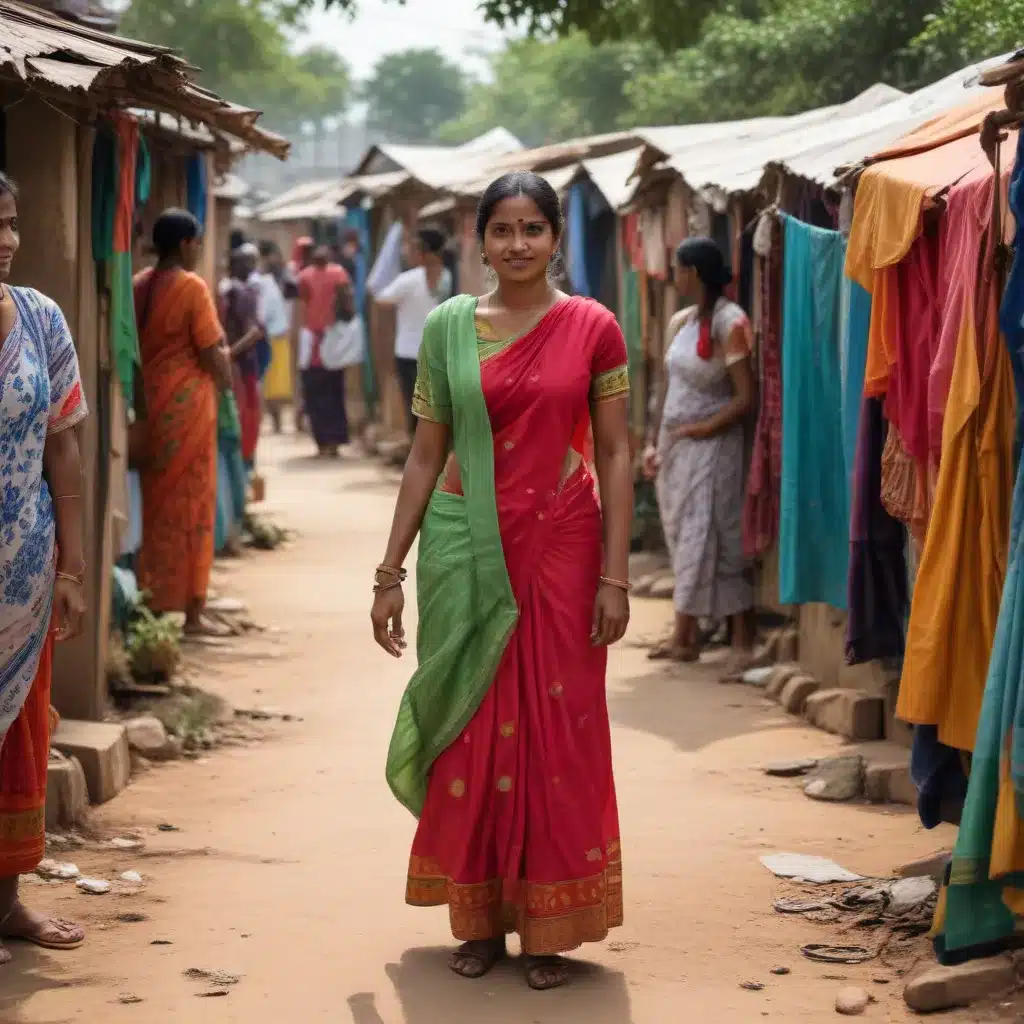
Addressing the Intersection of WASH, Gender, and Empowerment in Hyderabad’s Informal Settlements
Transforming Access to Water, Sanitation, and Hygiene for Sustainable and Equitable Development
Across Hyderabad’s sprawling informal settlements, the challenges faced by residents in accessing reliable, affordable water and sanitation services are inextricably linked to broader issues of gender inequity and community disempowerment. As a seasoned expert in water and sanitation services, community engagement, and advocacy, I have witnessed firsthand how these intersecting barriers perpetuate cycles of poverty, poor health, and missed opportunities for marginalized communities.
Uncovering the WASH Crisis in Hyderabad’s Informal Settlements
Hyderabad, the bustling capital of Telangana state in southern India, has experienced rapid urbanization over the past decades. This growth has been accompanied by the proliferation of informal settlements, where an estimated 1.5 million people, or nearly 35% of the city’s population, reside. These communities, often built on the urban periphery or in environmentally fragile areas, are characterized by substandard housing, limited access to basic services, and insecure land tenure.
The water, sanitation, and hygiene (WASH) crisis in these settlements is acute. Surveys conducted in Hyderabad’s informal communities reveal that only 40% of households have access to piped water supply, with the majority relying on public taps or private vendors who charge exorbitant rates. Sanitation access is even more dire, with less than 30% of households connected to the city’s sewer network. The remainder resort to unsafe practices such as open defecation or use of dilapidated, shared latrines.
The implications of this WASH deprivation are profound. Women and girls bear the brunt of the burden, spending hours each day fetching water, lacking safe and private sanitation facilities, and facing heightened risks of gender-based violence. Children in these communities suffer from increased incidence of waterborne illnesses, malnutrition, and stunted development. The lack of WASH access also hampers economic opportunities, as time spent on water collection and managing sanitation needs reduces the ability to pursue livelihoods or education.
Catalyzing Change through Inclusive Governance and Community Empowerment
Addressing the WASH crisis in Hyderabad’s informal settlements requires a multi-pronged approach that puts the voices and experiences of marginalized communities at the forefront. Key to this is fostering inclusive governance structures that enable meaningful participation of residents, particularly women, in decision-making processes.
One promising model is the establishment of Water and Sanitation Management Committees (WSMCs) in informal settlements. These community-based organizations, comprising elected representatives from households, work closely with local authorities to identify WASH needs, monitor service delivery, and advocate for improvements. By amplifying the perspectives of women, who are often the primary users and managers of household water and sanitation, the WSMCs have been instrumental in shaping more gender-responsive interventions.
For example, in the Balapur informal settlement, the local WSMC worked with the Hyderabad Metropolitan Water Supply and Sewerage Board to relocate public taps to more accessible locations, reducing the time and physical burden on women and girls. The committee also partnered with a civil society organization to construct community toilet blocks with separate facilities for men and women, ensuring privacy and safety.
Empowering Women as Agents of Change
Alongside inclusive governance, empowering women as leaders and change agents within their communities is crucial for sustainable WASH transformation. In the Ambedkar Nagar informal settlement, a group of women formed a self-help group to collectively address their water and sanitation challenges.
Through organizational training and seed funding, these women leveraged their local knowledge and networks to map water sources, monitor water quality, and advocate for better service provision from the city government. They also established a community-managed water kiosk, providing affordable, safe drinking water to residents and generating income to sustain the initiative.
The self-help group’s success has inspired other women in Hyderabad’s informal communities to follow suit, forming their own collectives to tackle WASH issues. These grassroots efforts not only improve access to essential services but also build women’s leadership capacities, amplify their voices in decision-making, and foster a sense of collective agency.
Scaling Impact through Partnerships and Policy Reforms
While community-driven initiatives are essential, achieving transformative, citywide WASH improvements requires strategic partnerships and policy reforms that address the structural barriers faced by informal settlement residents.
At the city level, the Hyderabad Metropolitan Water Supply and Sewerage Board has forged collaborations with civil society organizations and academic institutions to pilot innovative WASH solutions. These include the use of smart meters to monitor water distribution and the implementation of decentralized wastewater treatment systems in areas lacking sewer connectivity.
Furthermore, the Telangana state government has taken steps to strengthen the legal and policy frameworks supporting WASH access in informal settlements. The recently launched Telangana Slum Development Act mandates the provision of basic services, including water and sanitation, to all slum dwellers, regardless of land tenure status. This landmark legislation, coupled with increased budgetary allocations for WASH infrastructure, holds the potential to catalyze large-scale improvements.
Towards a More Equitable and Sustainable Future
The journey to ensuring universal access to water, sanitation, and hygiene in Hyderabad’s informal settlements is an ongoing challenge, but one that holds immense promise for unlocking broader social, economic, and environmental benefits. By placing gender equity and community empowerment at the heart of WASH interventions, we can create a more inclusive, resilient, and sustainable future for all.
Through collaborative partnerships, policy reforms, and community-driven initiatives, Hyderabad can leverage the transformative potential of WASH to advance the Sustainable Development Goals and improve the quality of life for its most marginalized residents. This holistic approach, grounded in the lived experiences of informal settlement dwellers, can serve as a model for other cities grappling with the intersection of WASH, gender, and empowerment.

